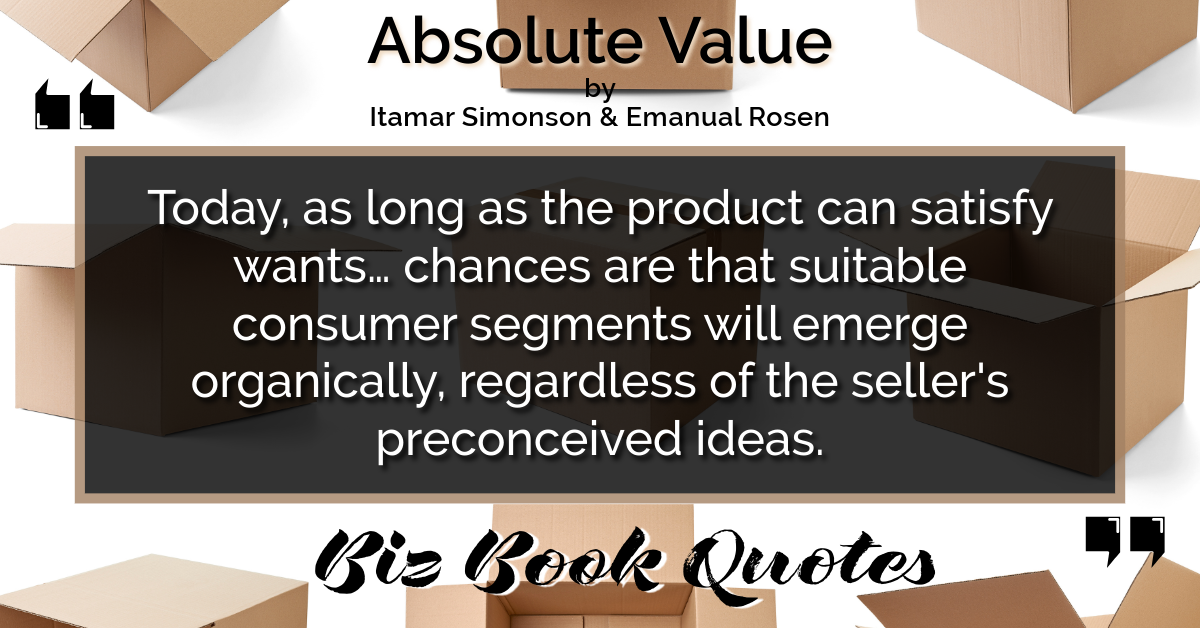 |
The new information environment around us allows consumers to predict much more accurately the experienced quality (or absolute value) of products and services they consider getting.
|
|
 |
Consumers used to make decisions relative to other things… But today, more and more decisions are based on the absolute value of things.
|
004 |
 |
While emotional response is often very important, for products and services that have specs quality is usually regarded by consumers as the most important consideration that should guide choices.
|
040 |
 |
…if consumers rely less on the name and more on its absolute quality, the advantage of a brand or line extension strategy is becoming less significant…
|
064 |
 |
Most consumers are likely to find the information equilibrium that fits them – the amount of information they feel can help them make better decisions.
|
067 |
 |
…from a consumer’s perspective, loyalty can often be an inferior input, because quality and performance can vary greatly across products by the same company.
|
081 |
 |
…more and more consumers see their relationships with companies as an open marriage: If something better comes along, they will go with the better option.
|
087 |
 |
…when consumers use diverse and detailed sources of information, chances are slim that they will all focus on one feature and neglect other pertinent considerations.
|
104 |
 |
Today, as long as the product can satisfy wants… chances are that suitable consumer segments will emerge organically, regardless of the seller’s preconceived ideas.
|
106 |
 |
…[a] study suggests that a certain combination of heritable traits leads a large group of consumers to behave in a similar way.
|
121 |